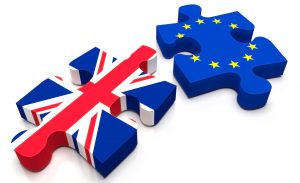 By Hannah Magnuson and Dennis Culloton
By Hannah Magnuson and Dennis Culloton
Shouldn’t an economic downturn and widespread turmoil sound suspiciously familiar to the Brits? The “remainers” who wanted the United Kingdom to remain in the European Union, led by Prime Minister David Cameron, had warned of this throughout the campaign leading up to the June 23 “Brexit” referendum.
Cameron bowed to pressure from his Tory Party’s conservative wing to call for the referendum. Now the question is one of his legacy. Was the Brexit referendum Democracy in action? It certainly turned out to be his Waterloo.
Moreover, was the Brexit protest vote a cautionary tale for the upcoming U.S. presidential elections?
Cameron told voters regarding the Brexit vote: “above all it is about our economy.” Cameron urged votes to consider the jobs and businesses that are dependent on EU trading.
He implored the older generation to think of their children and the tumultuous future which a vote to leave could unleash upon them. Since last month’s vote, the pound has dropped to its lowest value in 31 years and the UK has relinquished its claim to the world’s 5th largest economy to France. Not only was Cameron obliged to resign, pro-Brexit campaign leader and former London Mayor Boris Johnson, who briefly celebrated a Trump-ian Brexit referendum victory, saw his political fortunes tumble along with the value of the pound.
So why didn’t Britons listen to Cameron?
As the vote demonstrates, the majority of the British people no longer put stock in what their elected leader has to say. Cameron lost their confidence over the course of his time in office, and the Brexit—and all the worldwide chaos it has created—is the consequence.
The British public showed they no longer want to take orders from an authority figure and would rather follow the advice of a voice of the people—an “everyday man”—regardless of the legitimacy of that voice. In short, the majority of the British voted in a way that pushes for populism.
While the vote to leave was jaw dropping for most worldwide viewers, a country does not make populist moves overnight. The Panama Papers’ uncovering of Cameron’s father’s offshore investment company—a company that Cameron himself benefitted from—did little to help the prime minister’s popularity and did much to elevate the sense of distrust aimed at authority figures. Why should their already wealthy prime minister be exempt from paying the taxes that the “everyday man” was faced with, after all?
This sense of injustice coupled with the “take back our country” mentality held by those troubled by the immigrant influx in the UK showcase the roots that populism can grow upon. These populist sentiments have now gained enough popularity that they can influence the majority of the people, and can control major referendums—and possibly future elections.
So, now that the British have stunned the world with this first big populist leap, what does this mean moving forward for the UK, the EU, and America? If the surprising, populist Trump campaign continues to surge in this country, will Wall Street respond with a Brexit-like backlash.
With Cameron giving his notice to the Queen of his resignation, fellow conservative and Tory party member Theresa May now assumes the prime minister’s post. Though she supported remaining in the EU she has taken notice that the people have spoken. Brexit means Brexit, she says, and so the drama continues.